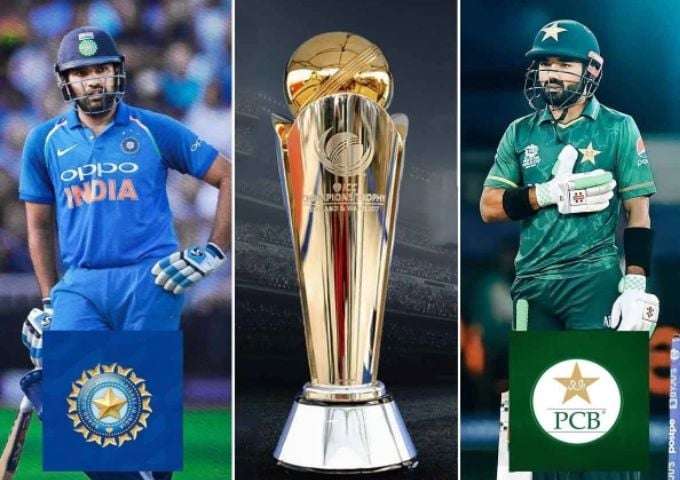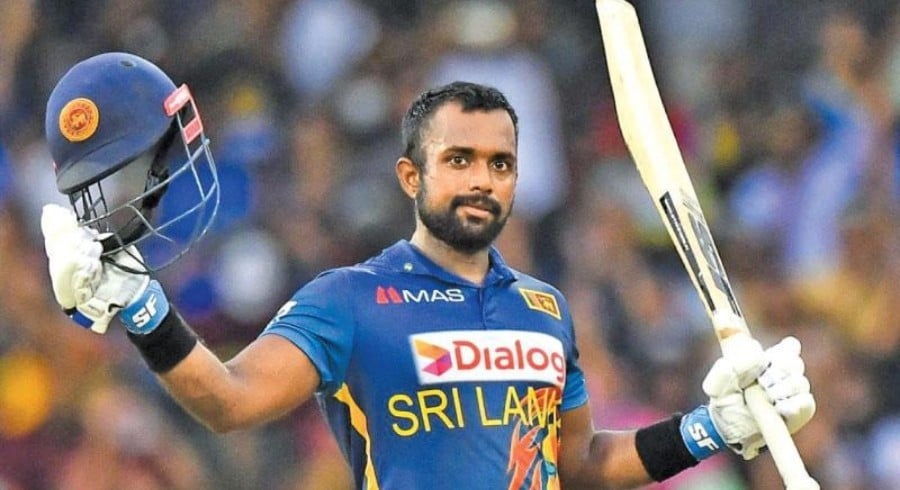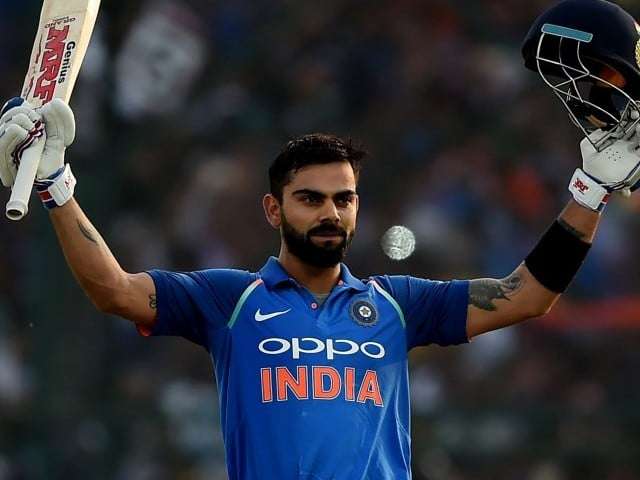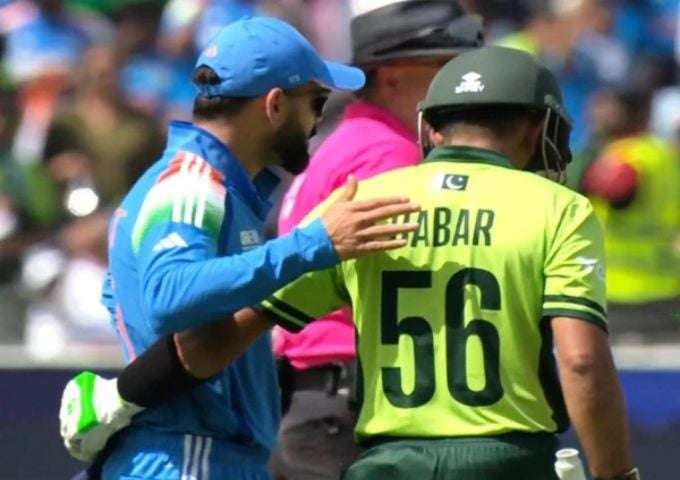The International Cricket Council (ICC) board meeting to discuss the hosting of the 2025 Champions Trophy has been delayed due to India requesting additional time to resolve the ongoing dispute regarding the tournament’s venue. This delay has heightened tensions between Pakistan and India, with Pakistan insisting on hosting the entire event within its borders, once again rejecting the hybrid model proposed by the ICC.
In this article, we explore the dynamics surrounding this controversy, the positions of both the Pakistan Cricket Board (PCB) and the Board of Control for Cricket in India (BCCI), and the broader implications for the tournament.
The Controversy Surrounding the 2025 Champions Trophy
The ICC’s Proposed Hybrid Model
The 2025 Champions Trophy, one of the most anticipated cricket tournaments, is being marred by a complex dispute between the cricket boards of India and Pakistan. At the heart of the issue is the proposal for a hybrid model, which the ICC has suggested as a compromise. Under this model, some matches would be held in Pakistan, while others would take place at neutral venues.
This hybrid model is an attempt to reconcile Pakistan’s desire to host the tournament entirely on home soil with India’s reluctance to travel to Pakistan due to security concerns and ongoing political tensions between the two countries.
Pakistan’s Stance on Hosting the Entire Event
Pakistan’s position on hosting the 2025 Champions Trophy in its entirety is clear. The Pakistan Cricket Board (PCB) has made it known that the country is committed to hosting the event in its entirety. PCB Chairman, Najam Sethi, has repeatedly expressed that Pakistan is prepared to handle the logistics and security for the tournament, emphasizing that it would not be a feasible or fair arrangement to host the event partially in neutral venues.
Pakistan’s insistence on this matter stems from the belief that the country’s cricket infrastructure is fully capable of hosting major international events. Moreover, PCB officials have pointed out that it would be a sign of strength for Pakistan’s cricketing reputation to host such a prestigious tournament after years of cricketing isolation following security concerns in the past.
India’s Reluctance to Travel to Pakistan
On the other side of the debate, India has expressed significant reluctance to send its national team to Pakistan for the tournament. The primary reasons for this hesitation revolve around security concerns and the strained political relations between the two countries. Despite efforts from the ICC to find a diplomatic resolution, India has firmly stated that it would not be sending its players to Pakistan for the event.
The Indian government has been cautious about allowing its teams to travel to Pakistan, citing the security situation in the region. As a result, India has remained steadfast in its position, raising concerns about the future of the tournament.
The ICC’s Role in the Dispute
Efforts to Mediate the Conflict
The ICC has been in continuous talks with both the PCB and the BCCI to find a solution that is acceptable to both parties. Originally scheduled for November 29, the ICC board meeting to discuss the Champions Trophy’s venue was postponed after preliminary talks failed to yield any concrete agreements. The ICC has now given both cricket boards a deadline of 24 to 48 hours to present solutions that can help break the deadlock.
ICC officials have expressed the hope that a mutually agreeable solution can be found. However, as the situation stands, the future of the tournament remains uncertain, with no clear path forward.
The Potential for Voting to Resolve the Issue
If the two boards fail to reach an agreement in the coming days, the issue could be put to a vote by the ICC’s members, a move that could potentially resolve the dispute. However, such a decision would be a delicate one, as it would require a majority vote from ICC members. This could place additional pressure on countries with political or diplomatic ties to either India or Pakistan, making it a more complicated decision than it initially appears.
The Broader Implications of the Dispute
Impact on the 2025 Champions Trophy
The ongoing disagreement between Pakistan and India is casting a shadow over the 2025 Champions Trophy. If the issue is not resolved in a timely manner, it could affect the planning and scheduling of the tournament. Teams, sponsors, and broadcasters all rely on certainty regarding the venue of major international events, and continued uncertainty could disrupt the tournament’s preparations.
Moreover, the dispute could set a precedent for future ICC tournaments, where the politics between countries involved could have a greater influence on where tournaments are held. This would undermine the integrity and fairness of the tournament process.
Economic and Diplomatic Concerns
The economic implications of this standoff are also significant. Hosting a major international cricket tournament is a substantial financial investment for any country. It attracts tourists, boosts local businesses, and provides broadcasting and sponsorship deals that can be lucrative for the host nation. If Pakistan is denied the opportunity to host the tournament, it could have a negative impact on the country’s economy, particularly in terms of tourism and international visibility.
Additionally, the diplomatic fallout from the dispute could be long-lasting. Tensions between Pakistan and India have often spilled over into the cricketing world, with both sides using the sport to assert their national pride. If the 2025 Champions Trophy is not held in Pakistan as planned, it could further damage relations between the two countries and further politicize the sport.
FAQs
1. Why has the ICC delayed the board meeting about the 2025 Champions Trophy?
The ICC has delayed the meeting after India requested more time to resolve the issue of the venue for the 2025 Champions Trophy. Preliminary talks between Pakistan and India failed to produce an agreement, prompting the ICC to give both boards more time to find a solution.
2. What is the hybrid model proposed by the ICC?
The hybrid model proposed by the ICC would involve holding some matches of the 2025 Champions Trophy in Pakistan, while others would be played at neutral venues. This proposal aims to compromise between Pakistan’s desire to host the entire tournament and India’s refusal to travel to Pakistan.
3. Why is India unwilling to travel to Pakistan for the tournament?
India’s reluctance to travel to Pakistan stems from ongoing political tensions and security concerns in the region. The Indian government has expressed that the safety of its players cannot be guaranteed in Pakistan, which has led to its stance of not sending the national team.
4. What would happen if Pakistan does not get to host the entire Champions Trophy?
If Pakistan is denied the opportunity to host the 2025 Champions Trophy, it has threatened not to participate in any future ICC tournaments hosted by India. This could further strain cricketing relations between the two countries and complicate future events.
5. Could the ICC vote to resolve the dispute?
If an agreement between Pakistan and India cannot be reached, the issue may be put to a vote by the ICC’s members. This would require a majority vote to determine the final venue for the 2025 Champions Trophy. However, such a decision would be influenced by the diplomatic and political ties of the ICC members.
SEE ALSO:
https://flarenews.pk/2024/11/30/gold-prices-dip-in-international-and-local-markets/



